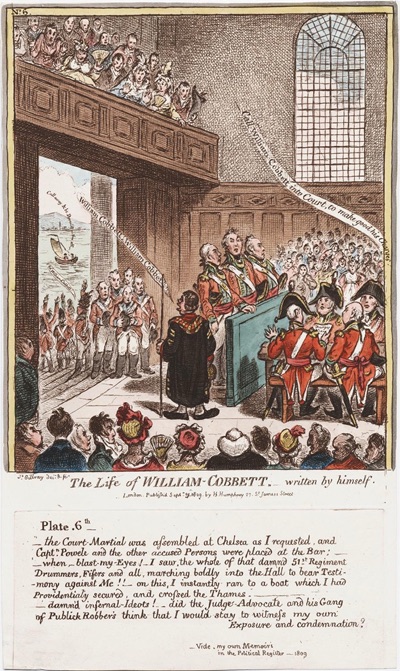
William Cobbett Part 5 -Prophet of Doom

We all know somebody who is confident that they know how the world works but however fails to predict what will happen happen next Tuesday. William Cobbett possessed an almost supernatural ability to get the big picture spectacularly wrong. His career reads like a masterclass in how brilliant insights can be undermined by catastrophic judgement, how someone can be simultaneously prophetic and deluded, often in the same paragraph. If there was a wrong side of history to be on, Cobbett found it with the unerring instinct of a man following a faulty compass.
The most persistent of his delusions was his conviction that Britain was perpetually on the verge of economic collapse due to its national debt. From the moment he turned radical until his dying day, Cobbett insisted that the government’s borrowing would inevitably lead to national bankruptcy, social revolution, and the complete breakdown of civilised order. Every budget deficit was proof that the end was nigh, every new government bond was another nail in the coffin of British civilisation. The fact that the economy continued to grow, the debt continued to be serviced, and civilisation stubbornly refused to collapse only convinced him that the reckoning had been postponed rather than avoided.
This wasn’t merely academic error but wilful blindness to evidence that contradicted his preferred narrative. Cobbett lived through the early stages of the Industrial Revolution, witnessing unprecedented economic growth and technological innovation, yet somehow convinced himself that Britain was getting steadily poorer and weaker. He saw the expansion of trade, the development of manufacturing, and the growth of cities as symptoms of decline rather than progress. It was as if he’d decided that reality was wrong.
His attitude towards the national debt revealed the limitations of his economic understanding. Cobbett treated government borrowing as if it were household debt, assuming that what was true for a struggling farmer must also be true for a sovereign nation with its own currency and tax system.
But his biggest bit of doom-mongering was his assertion that the population of the United Kingdom was falling.
His evidence for this demographic catastrophe was entirely anecdotal. Cobbett had the unfortunate habit of treating his own limited observations as universal truths. During his Rural Rides across southern England, he noted abandoned cottages, empty villages, and what he perceived as a general air of desolation. Most tellingly, he became obsessed with the size of medieval churches relative to their current congregations, convinced that these grand structures proved that past populations must have been vastly larger than the present day.
Picture Cobbett standing in some ancient parish church, counting the pews and calculating that the building could accommodate perhaps five hundred souls, whilst the current village boasted barely fifty residents. To his mind, this was irrefutable proof that England had once teemed with people but was now a shadow of its former self. The possibility that medieval churches were built to serve wider areas, that they reflected the wealth and ambition of particular patrons rather than local population density, or that religious observance patterns had changed over the centuries, simply didn’t occur to him. If a church was too big for its current congregation, then obviously the population had collapsed.
That these observations might reflect agricultural changes, enclosure movements, or simple local variations never occurred to our hero. If William Cobbett saw it, it must be emblematic of the entire nation.
In reality the country was undergoing a population explosion unprecedented in not only UK history, but in world history. The 1801 census recorded about 9 million people in England and Wales; by 1831, the figure had risen to nearly 14 million. Growing industrialisation and urbanisation were giving rise to an economy that could draw on the resources of the planet. It was quite simply the most remarkable and the most remarked upon feature of the time Cobbett lived in.
And he wasn’t having it.
Just as modern conspiracy theorists insist that mainstream media and official statistics are part of elaborate deceptions, Cobbett dismissed the census figures and government data as lies perpetrated by the corrupt establishment. He preferred his own observations, however limited and biased, to systematic evidence. This is the appeal of the maverick outsider: the comforting belief that one’s personal insights are more reliable than collective expertise. Modern day climate change deniers take note.

